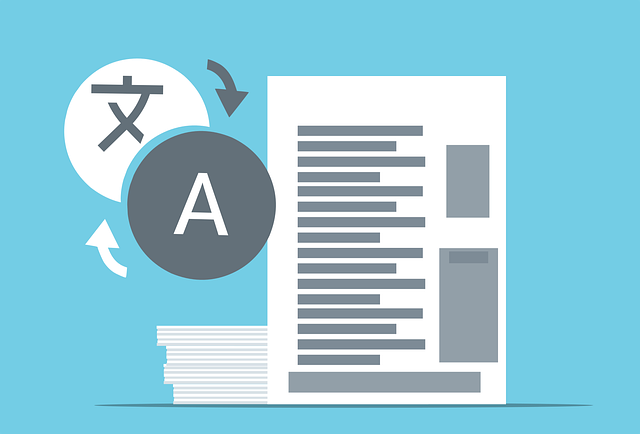Rapid Translate Team
The accuracy and validity of translated documents make them useful for various official purposes. This is why certifying translation is in place to ensure this standard. However, many people still don’t understand this process. So, what is a certified translation?
You may have heard about the concept. This post explains everything about the concept.
Luckily, this post explains everything about the process in detail. Read on to get all the information you need!

Table of Contents
What Is a Certified Translation of a Document?
A certified translation contains a signed statement from the translator. This statement proves the translation’s accuracy and the translator’s skill. Like you, many people have asked, “What is a certified translation of a document?” Well, it is also a “Certificate of Accuracy.”
A certification statement proves that a translated document is accurate. A certified translation fulfills a country’s demands to ensure the document is valid for formal procedures. However, translation requirements vary widely from country to country.
While professional translators can certify a translation in some countries, others may allow any competent person.
The Importance of Certified Translations
Certified translations are crucial for many official procedures. Here’s why this type of translation is so important:
- Expertise: Certifying a translation shows a person’s commitment to quality and attention to detail.
- Legally valid: Certifying official documents makes them legally valid for courts, educational institutions, and government agencies.
- Precision: Certification assures concerned parties of the translation’s accuracy. This removes the need for additional steps to make it valid.
- Global acceptance: Many countries recognize and accept certified translations. This makes them useful for paperwork in several countries.

3 Types of Certified Translations
There are different types of certified translations. Each type is vital for making official documents valid. The types of translation certification are worth knowing in order to understand the process better. Let’s look at the three common types of certified translations.
1. Standard Certified Translations
This is the general type of certified translation. In this case, a translator attaches a signed statement of accuracy. This type ensures that the translator completes the process to the best of their abilities. It ensures the content is a word-for-word translation and meets the standards.
2. Notarized Translations
A notarized translation is one in which a notary public confirms a translated document is valid. The notary becomes legally responsible for verifying that the document is accurate. Their effort also confirms that the document is original.
This gives the document additional security and makes it valid for legal purposes. A notarized translation is the same as a certified document in many countries.
3. Apostilled Translation
An apostille is a legal process for documents between countries participating in the Hague Convention. This process removes the need for both countries’ officials to certify it. Apostilles are useful for both original documents and translated copies. They prove a translation is valid and original for use in a foreign country.

Required Information in a Translation Certification
A certification statement can contain specific information based on the body requesting it. Despite this, each certification statement should cover the following information:
- A brief statement of the translator’s expertise.
- A statement proving the document is accurate and complete.
- Information identifying the original document, including the target and source languages.
- The translator’s name, signature, and date of translation.
Your certification statement should be complete with this information. That notwithstanding, it is best to ask about a company’s translation standards. This would enable you to use the correct translation format and certification statement.
Types of Documents Needing Certified Translations
Certification is a crucial process, but not every document needs it. In this section, we’ve highlighted the common documents that need translation certification. Let’s take a look:
- Legal documents: This includes documents meant for courts and any other government agency. Examples are documents for legal proceedings, affidavits, writs, summons, certificates, declarations, etc.
- Immigration documents: These documents are vital for entering countries that speak foreign languages. They include birth certificates, passports, marriage certificates, etc.
- Academic documents: These documents are useful for applying to study in foreign countries. They include school transcripts, diplomas, and degrees.

Certified Translation Requirements for Some Countries
As mentioned before, certified translation requirements vary from country to country. This is why working with translation companies that know these standards is important. However, this section explains the requirements for three popular countries.
1. Requirements for a Certified Translation Canada Accepts
Canada speaks both English and French as its official language. Therefore, you must translate official documents written in foreign languages into one of these. This enables you to apply for official procedures like immigration. Each certified translation Canada approves includes a professional translator’s verification.
An Immigration, Refugees, and Citizenship Canada (IRCC) certified translation must come from the original document. However, there are other certification demands to follow:
- The translation must come from certified translators.
- If a translator couldn’t certify the document, an affidavit must accompany it.
- The translations must be a word-for-word copy of the original document.
All these requirements are answers to “What is a certified English translation for Canada?”
2. Requirements for Certified Translation UK Approves
If you are applying to the UK for immigration, you should get answers to some necessary questions. One is “What is a certified English translation for the UK?” This makes translated documents for UK immigration valid. Fortunately, a certified translation for the UK doesn’t ask for much. It only needs the following information:
- A confirmation statement that it is an accurate translation of the original document.
- The translation date
- The translator’s full name and signature.
- The translator’s contact details.
3. Requirements for U.S.-Certified Translations
Like other government agencies, the U.S. Citizenship and Immigration Services (USCIS) has its translation requirements. The U.S.-certified translation mainly needs foreign language documents to be in English. Many have asked, “What is a certified English translation for the U.S.?” This is basically about these demands.
In addition, the translator must provide a stamped certification statement. This statement should prove the document is accurate and that the translator is accredited. It must include the translator’s name, level of competence, contact information, signature, and certification date.You must then attach the statement to the original document and the translated version. Also, note that each document must have its own translation certification.

FAQ
What is considered a certified translation?
A certified translation is a document verified by a professional translator. This verification proves that it is an accurate copy of the original document.
What is the difference between a sworn translation and a certified translation?
Translations from sworn translators are legally binding and useful for official legal proceedings. Meanwhile, certified translations are not necessarily legal, but still reliable and accurate.
What is the difference between a certified translation and a notarized translation?
A certified translation is one in which a qualified translator has sworn that it is accurate. Meanwhile, a translator and a notary public sign a notarized translation to prove it is valid.
What is the difference between certified translation and professional translation?
Certified translation involves official documents for government agencies or other authorities. Professional translation covers more materials, like literary works and technical documents.
What Is a Certified Public Translator?
A certified public translator is a professional translator certified by a recognized body or authority. This position enables them to translate documents for official purposes. You may wonder, “What is a certified public translator since they perform a typical translator’s role?”
The term “public” in this title doesn’t mean they work for the public sector or government agencies. Instead, it refers to their role as translation providers to the public. This includes businesses, people, and other bodies. In this situation, the term “public” indicates that they are:
- Publicly accessible: They offer translation services to anyone who needs them.
- Publicly responsible: They take responsibility for the quality of the certified translations.
- Publicly accepted: Several countries and organizations recognize and accept their translation certification.
In comparison, private translators may only work for a single person or company. Translated documents from private translators are not for public use. In essence, certified public translators are available to provide the public with certified translations.
Some notable translator’s certification bodies include:
- The American Translator’s Association (ATA)
- International Association of Professional Translators and Interpreters (IAPTI)
These bodies confirm the translator’s skill and knowledge in their language pair and specialty.
Now that you know “What is a certified translation?” getting the right service provider is next. Rapid Translate has the certification to provide translated documents for official purposes. Our translation agency stands out for the quality of its results.
Rapid Translate ensures your approval from various government agencies. Connect with the world with our outstanding services. Order now to enjoy top-quality certified results!




